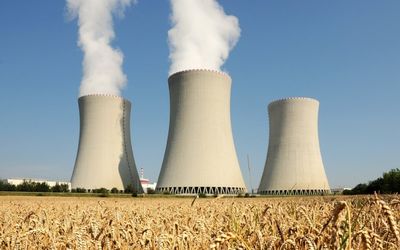THE price of electricity generated by nuclear power is expected to be higher than that from any other technology except for gas and diesel, two separate and independent analyses have found.
The government is pressing ahead with a politically driven plan to procure 9,600MW of nuclear power, but has not revealed what it will cost or provided detailed information of the effect it can be expected to have on the electricity price path.
In the absence of official information, the expert analyses provide the first real evidence of the effect nuclear energy will have on the price consumers are likely to pay for electricity.
The analyses illustrate that nuclear electricity could be more expensive than that generated by new coal plants, solar photovoltaic panels or wind. The studies differ slightly but both project a long-run or levellised cost of electricity for each technology, inclusive of capital, finance, maintenance and fuel costs.
In the first, Council for Scientific and Industrial Research (CSIR) energy centre manager Tobias Bischof-Niemz projects the levellised cost of electricity from nuclear power to be R1/kWh, from new coal R0.80/ kWh, solar photovoltaic R0.80/ kWh and wind R0.60/kWh in today’s prices.
The electricity prices for wind and solar power are drawn from the latest round of bids by independent power producers. For new coal and nuclear power, the levellised costs are based on assumptions in the Integrated Resource Plan (IRP) 2010, the government’s key energy planning document, as well as the capital cost estimate of $40bn for eight reactors by Russian nuclear vendor Rosatom.
The assumptions are generous on nuclear energy. Rosatom’s overnight cost estimate is considered to be low. The IRP 2010 assumptions are optimistic about nuclear, assuming a high load factor and a low cost of finance, as the units are built at a rate of six years per unit.
The CSIR says this implies that the levellised cost of nuclear energy will be no less than R1/ kWh but is likely to be more.
Dr Bischof-Niemz presented the price projections at a seminar on the costs and benefits of renewable energy at the Mapungubwe Institute for Strategic Reflection recently.
The analysis done by the Energy Research Centre at the University of Cape Town also projects high risk that the levellised cost of nuclear energy will come out higher than most other technologies.
Leaving a margin of uncertainty, the levellised costs of coal-fired electricity in 2030 in today’s prices is projected to be from R0.54/kWh to R0.84/kWh; solar photovoltaic from R0.54/kWh to R0.78/kWh and nuclear from R0.72/kWh to R1.44/kWh.
The Energy Research Centre model was designed as part of an "uncertainty study" funded by the United Nations Environment Programme.
Among the assumptions it makes is that 9,600MW of nuclear energy would range from $50bn to $70bn in overnight costs, which is arrived at using the per kilowatt price in the IRP 2013, an updated version of the Department of Energy’s planning document, which is yet to be adopted by the Cabinet.
Asked to comment on the findings, Department of Energy deputy director-general Zizamele Mbambo said the government had also commissioned an independent modelling exercise on comparative technologies.
"The outcome of this study has shown that nuclear remains competitive in comparison with other base-load technologies such as coal and gas. Commenting on the studies you mention would not be prudent as we have not commissioned them and do not know the context," he said.
Mr Mbambo has stated on several occasions that the government cannot reveal its modelling as it would jeopardise the procurement process.
Energy Research Centre researcher Bruno Merven says that the high risks attached to nuclear costs mean that taking a large bet on nuclear — such as 9,600MW all at once — is not prudent and "a flexible, bite-sized approach" is more advisable.
He also cautions that to look at levellised price alone has limitations. When making choices, other factors such as climate change and pollution would also necessarily be factored into energy decisions. This would tip the balance in favour of renewable technology and nuclear energy, although concerns remain over the storage of nuclear waste.
Despite an absence of public and stakeholder discussion over how the choice of technology will affect the price that consumers pay for electricity, the nuclear procurement process is already under way.






















Post a comment